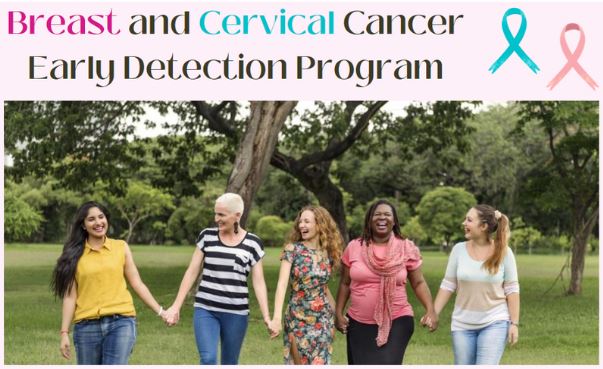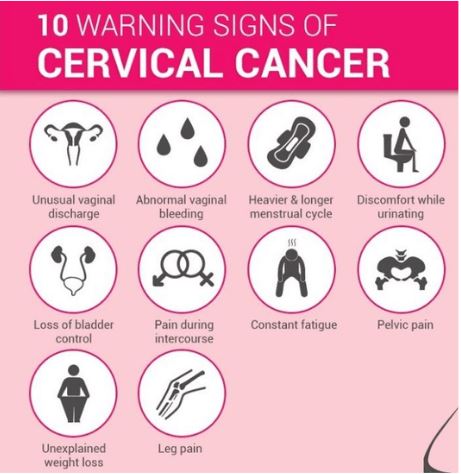
Like going to the dentist or changing the oil in your car, cancer screening should be a regular part of your life. Screening tests are used before a person has any symptoms to help find cancer early, when it may be easier to treat. Print this quick reference guide to take with you to a doctor’s appointment or share with loved ones.
Breast Cancer Early Detection and Diagnosis
What is breast cancer?
A cancer that develops in the breast cells and progresses in stages. Few early symptoms may include new lump in the underarm or in breast, itching or discharge from the nipples, and skin texture change of the nipple or breast.
Our Services:
Routine breast cancer screenings (CBEs) and mammograms (breast x-rays), may help detect cancer in its early stage.
At our clinic, you are eligible for a free breast cancer screening if you meet the general eligibility guidelines, which include: you do not have insurance, your insurance does not pay for this service, and you meet income guidelines.

AND you:
- Are ages 50 to 64
- Are ages 40 to 49 and have one of the following:
- A mother, daughter or sister with breast cancer
- A personal history of breast cancer
- A clinical breast exam result that is positive or abnormal
- Are ages 18-39 and have one or more of the following symptoms:
- Breast lump(s)
- Nipple discharge
- Skin changes
- Nipple changes
Did you know that while you cannot prevent breast cancer, knowing your risk, changing behaviors and getting screened regularly can catch breast cancer earlier? If breast cancer is caught early there are more treatment options and the chance of survival is higher.
Local Situation
Every day in Tennessee, 3 women die from breast cancer and 14 are diagnosed with the disease. More than 270,000 women get breast cancer each year in the United States. In 2020 in Tennessee about 5,760 new cases of breast cancer were diagnosed. About 42,690 women died from breast cancer in 2020 in the United States, including 950 from Tennessee.
Who can get Breast Cancer?
Some groups of women are at higher risk for breast cancer than others. Women who have a first degree relative (mother, sister, daughter), women over 40 and women who have their first child after age 30. But Black women are more likely to develop more aggressive, more advanced-stage breast cancer that is diagnosed at a young age. Black women are also more likely to die from breast cancer.
This decision is a shared discussion between you and your provider. You are never too young to develop breast cancer. After a discussion with your provider, women between the ages of 40 and 45 may choose to have a yearly mammogram. Women who are 45 to 54 years of age may have a breast exam by a health professional once a year, but may switch to every other year at age 55.
Cervical Cancer Early Detection and Diagnosis
What is cervical cancer?
Cervical cancer is cancer that starts in the cervix. The cervix is the lower end of the womb (uterus). It connects the uterus to the vagina. Most cervical cancers start with changes in the squamous cells on the surface of the cervix, usually caused by HPV. The Women's Health Clinic does offer the HPV vaccine.
Cervical Cancer is 100% curable if it is found early!
Our Services:
You are eligible for a free cervical cancer screening if you meet the general eligibility guidelines: you do not have insurance, your insurance does not pay for this service, and you meet income guidelines.

Who is at risk for cervical cancer?
Studies have found that a number of activities can contribute to a woman getting cervical cancer, including smoking or having sexual intercourse with many partners. Click here to view the risk factors.
Local Situation
It is one of the most common cancers found in women in the U.S. According to the CDC, each year in the United States, about 13,000 new cases of cervical cancer are diagnosed and about 4,000 women die of this cancer
When should I get an exam?
We recommend that you talk to your provider about when you should get exams.



Click here to leave a comment or concern.